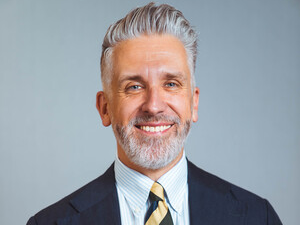Issue: 3/2018
In this issue, Nino Galetti and Philipp Lerch take this development as an opportunity to call for a renaissance of the village. They use a German-French perspective to point out the notoriously underestimated potential of rural areas and show that Europe’s further development will depend to a large extent on the successful use of resources outside the cities.
The sociologist Andreas Reckwitz also sees a great deal of potential in rural areas, as he articulates in an interview in this issue. There is a reason why people in large cities tend to seek out rural retreats. However, according to Reckwitz, this “urban exodus” will be limited in the foreseeable future by practical concerns, since knowledge economy jobs for highly qualified personnel are concentrated in the big cities.
Céline-Agathe Caro uses examples from the United States to demonstrate the political dimension associated with the urban-rural divide. She dives into the last presidential election to show how deep the split in American society is, and how it contributed to Donald Trump’s success. Her conclusion is that the only way the Democrats have a chance of unseating Trump in the next presidential election is to put forward a candidate who can bridge the urban-rural divide.
Currently, the greatest pent-up demand for urbanisation continues to be in Africa. Development there is proceeding rapidly. Forecasts show the urban population in Africa tripling and the number of large cities quintupling by 2050. This will entail a series of huge challenges and will shift the focus to the issue of security. Tilmann Feltes’s article therefore takes a look at police work and crime prevention.
If millions of people live together at close quarters, the initial concern, even aside from all the security issues, is the housing challenge. Many look to Singapore for answers, wondering how the city-state has succeeded, despite its rapid growth, in providing almost all its citizens with sufficient living space. Frederick Kliem’s article provides an answer to that question.
In conclusion, Kathrin Zeller explains how cities and their mayors have even come to participate in forums such as the United Nations Climate Change and the G20 that are traditionally reserved for nation states. This trend, which is associated with the hope of practical, people-oriented approaches, clearly shows the extent to which humanity’s future is tied to the urban future in so many ways.
I wish you a stimulating read.
Yours,

Dr. Gerhard Wahlers is Editor of International Reports, Deputy Secretary General and Head of the Department European and International Cooperation of the Konrad-Adenauer-Stiftung.



